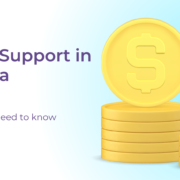Are you considering divorce? If so, you’re likely familiar with the emotional strain that comes with it. But amidst the whirlwind of emotions, it’s easy to overlook the importance of your family’s financial future when considering your divorce options. That’s where a Neutral Financial Professional steps in as an invaluable member of a Collaborative Divorce team. Let’s delve into what a Financial Professional does in this process and how they can help your family save money while preserving your financial well-being.
Collaborative Divorce
First and foremost, it’s essential to understand the Collaborative Divorce approach. Unlike traditional litigated divorces, where trial lawyers are retained and there is the constant threat or reality of a court battle, Collaborative Divorce emphasizes transparency, cooperation, and durable resolutions. The Collaborative Team typically comprises of specially-trained lawyers for each spouse, a team leader known as a Neutral Facilitator, and a Neutral Financial Professional. All professionals, once the process starts, can only help with out-of-court dispute resolution, and they are prohibited from being used to fight in court. The Collaborative Approach fosters open communication, leading to more amicable resolutions and, compared to litigated court battles, significant cost savings.
Role of the Neutral Financial Professional
Now, let’s shine a light on the role of the Neutral Financial Professional on the Collaborative Divorce team. As a Collaborative Lawyer, I often emphasize the pivotal role they play in ensuring fair and sustainable financial outcomes for both spouses. Here’s how they do it:
1. Financial Clarity
Divorce involves complex financial matters, from asset division to spousal support and child support. A Neutral Financial Professional brings clarity to this complexity by helping each of you analyze your financial situation. This is important, as it is common in divorce for one spouse to be less knowledgeable about the family’s finances than the other spouse. This disparity in knowledge oftentimes causes one spouse to freeze in the face of making long-term decisions out of fear of making the wrong decision, causes long delays and increased fees for both spouses.
Accordingly, the Financial Professional helps explain your family’s assets, liabilities, income, and expenses to provide a clear picture of your financial standing. This clarity is crucial for making informed decisions during negotiations, preventing surprises down the road.
Read more →












